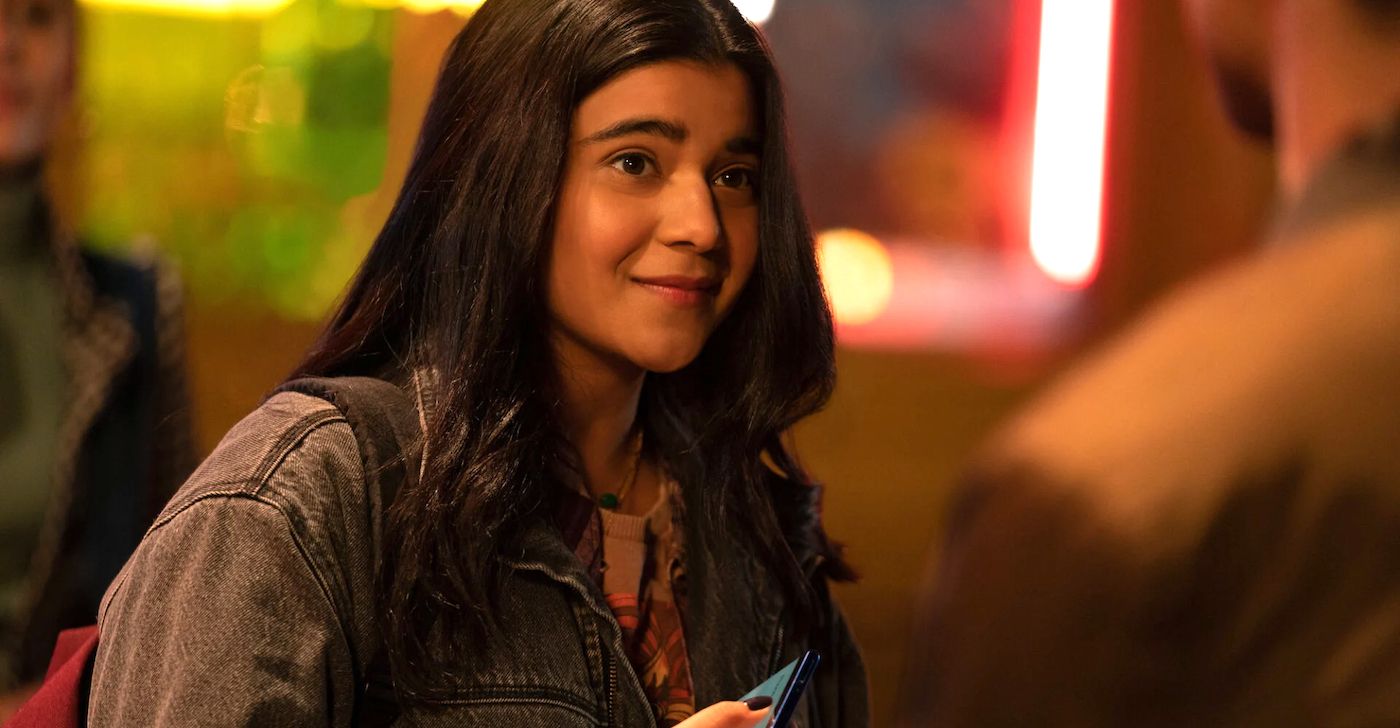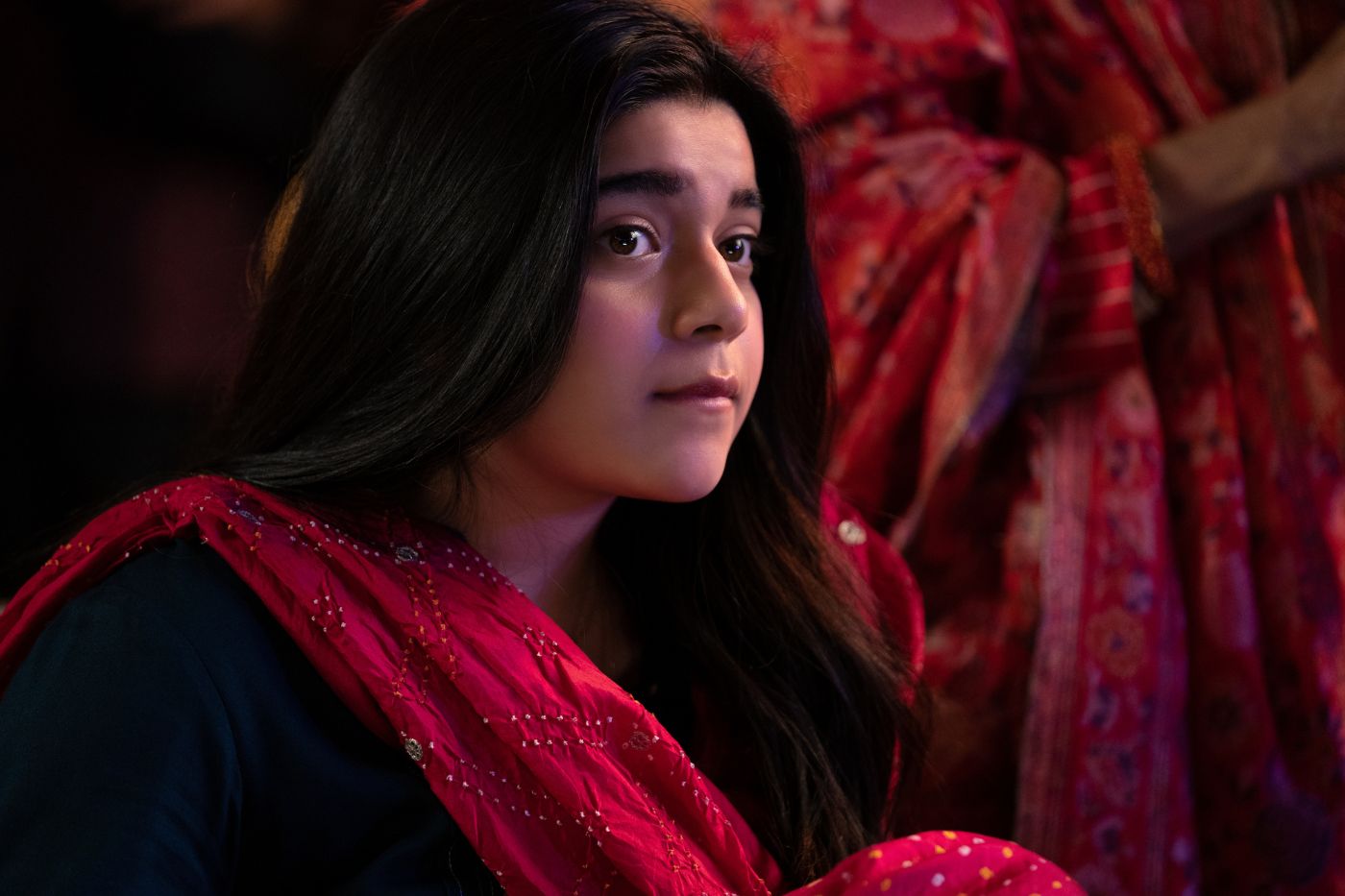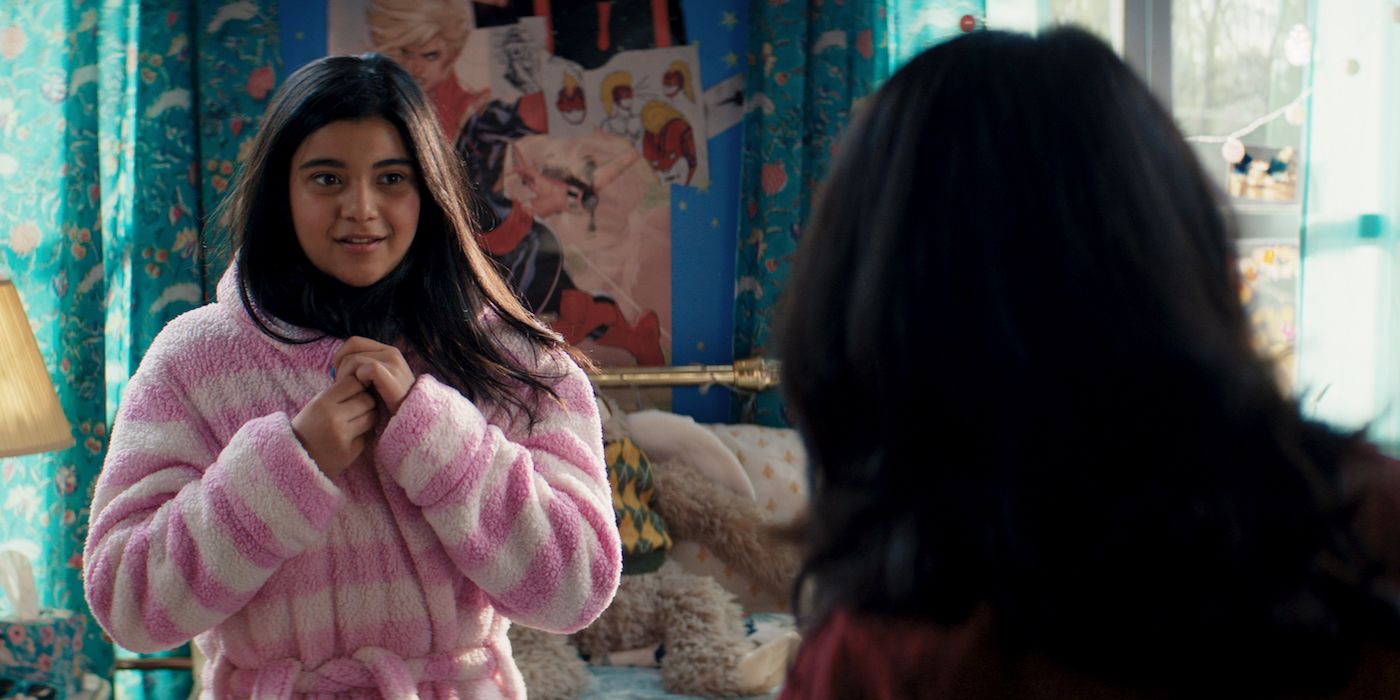Even before the series made the divisive decision of changing the powers of its titular superhero, Ms. Marvel had a lot to prove. The Bisha K. Ali series introduces the first Muslim character in the MCU and that too in the form of a 16 year old boisterous fan girl from Jersey. Kamala Khan (Iman Vellani) is far from the stereotypical white lead male character we’ve grown accustomed to seeing in MCU projects. Kamala’s Pakistani origin and Islamic faith are front and center in the Disney+ series in a way we’ve never seen before. While representation and diversity should be the cornerstone of any franchise, incorporating it organically makes all the difference in how it is perceived by the masses.
Ms. Marvel’s approach so far has been a winning formula of using comedy as a tool to distill deeper messages of faith, race and culture that would be a harder sell to the mainstream American audience. It hasn’t been entirely successful, Ms. Marvel’s premiere was the weakest launch among the MCU shows but the series was also credited with attracting a record number of Black, Asian and Hispanic households.
What sticks out is how authentically the series has approached Kamala’s Pakistani background and her relationship with her religion. Rather than it being a point of contention between her orthodox parents and her own beliefs, as is often the case in shows like Elite, Kamala is far more at ease about who she is even when the things she wants to do clash with her parents. What Ms. Marvel understands well is that Muslims don’t need to be defined purely by their religious background and Kamala feels like a fully fleshed character with her superhero obsession and short sightedness about others that makes her complete. Kamala isn’t perfect, and the show is happy to show the growing pains in a coming of age superhero story like the kind we’ve seen before. The show’s use of comedy is especially important. While comedy is a mainstay in teen dramas, Ms. Marvel uses comedy to make its discussions about being a Muslim and brown woman in America more accessible.
Not every decision made feels right. The Episode 3 revelation that she is essentially part Jinn feels like a rather weak way to explain her new powers and tie into her background. Plus, many fans have taken issue with how Jinns that are considered real in Islam are now being mixed in with the MCU storyline. And while there’s a lot that we don’t know about where that particular storyline is headed - we’ve only just met the Clan Destine - there’s no denying that this is a divisive decision among the community. However, it is important to note that Jinns have long been part of the South Asian and Islamic media, with Netflix even having a show called Jinn. The fact that they are usually malevolent is also part of the reason why Muslim fans aren’t on board with the whole Jinn plot.
But for all that it gets wrong, there’s far more that the series has gotten right. Whether it is her mum arguing about skin tight costumes and “haram” stuff to her having to stay away from alcohol. The show’s comedic tone creates fertile ground for the series to honestly and openly represent Islam without making the conversation too grim or alienating non muslim watchers. Nakia (Yasmin Fletcher) who is one of Kamala’s closest friends even talks about wearing the hijab positively, saying that wearing it makes it feel like who she is. This is far from Elite’s toxic portrayal of Islam where Nadia (Mina El Hammani) takes off her hijab in an “empowering” act of defiance when she goes to a club to get a man. It essentially reduces her hijab to an insignificant fabric worn to cater to her family’s whims rather than her own faith. Had the series had the writing chops and a diverse writer’s room, it could have explored this issue with depth. Instead, the series just reduces Nadia to a character who is ready to eschew her religious beliefs to appear sexy for men. This is a far cry from Kamala whose wholesome romance doesn’t come at the cost of her religion.
Kamala is open about who she is and her personality doesn’t suffer from her religion. She is loud and opinionated whether it’s with her friends or at the mosque raising awareness about the state of the women’s prayer room. Rather than it being a tense confrontation, her frankness, and the gentle demeanor of the Imam make the situation more cute and funny than the kind of over the top regressive portrayal of Islamic women we’ve seen in the past. Similarly, she is able to find the words of her faith comforting when she feels adrift about her power, drawing on to the Imam’s line about “Good is not a thing you are, it is a thing you do” at a moment of crisis.
Kamala feels like a relatable person, even when her life is a little different to look at on the offset from her culture to her religion. It helps that she is played by Iman Vellani who has proved in her debut role that she has the talent to become a fan favorite and future star in her own right. But even so, Kamala Khan feels like a change of pace, not only for the MCU but for teen dramas that have only recently begun to place brown women center stage. Kumail Nanjiani, fellow MCU superhero, who hails from Pakistan has mentioned how the depiction of Muslim characters in the media has been so poor that it is hard for the non Muslim viewer to even look at Muslim people as fully fleshed individuals because so often they are playing either dour persecuters or hapless victims in need of saving by white people. Making Ms. Marvel the bubbliest character in the MCU cannon is an excellent way to rectify just that whilst staying faithful to G. Willow Wilson’s excellent source material. While the series itself isn’t without its flaws, the show has thus far managed to exceed expectations in how its treated the first South Asian muslim hero and made Ms. Marvel a breath of fresh air.



